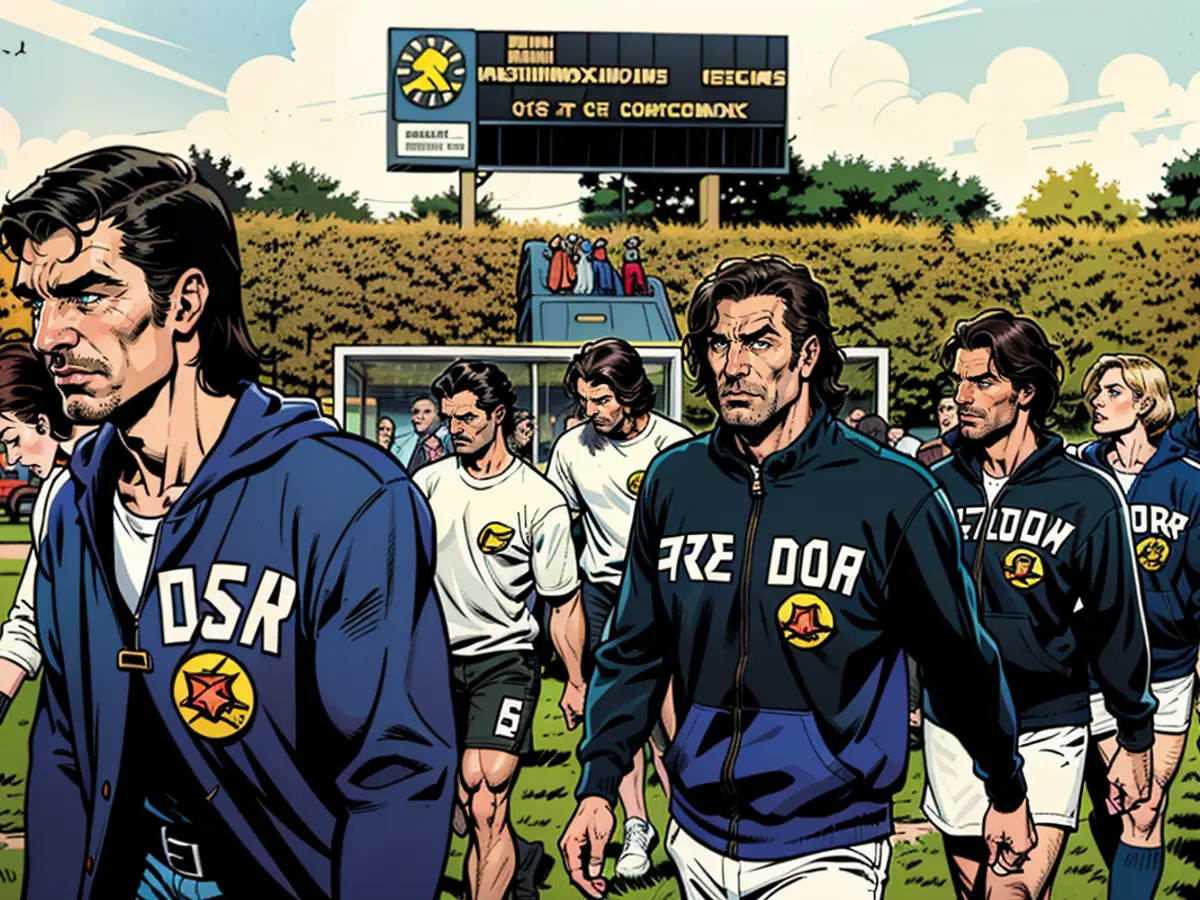Remarkable Brilliance: A Standout Moment in GDR Football's Glory
Jürgen Sparwasser, in a moment of jest, stated that he'd want "Hamburg 1974" etched on his tombstone, as it'd be a testament to his identity. Sparwasser, on that fateful night at the Volksparkstadion in Hamburg, was a force to reckon with, brimming with self-assurance.
Much like Helmut Rahn in the 1954 World Cup final, Andreas Brehme in Rome 1990, and Mario Götze in Rio, Sparwasser shares a commonality with these legends: their lives were permanently divided before and after a decisive goal. The only distinction is that Sparwasser's game-winning goal for East Germany against West Germany on June 22, 1974, didn't net a championship. Remarkably, this pivotal moment in sports history remains relevant 50 years later.
"It's a slice of history," the now 76-year-old striker reiterated in a chat with the Sports Information Service, not once minimizing its significance. The match between East and West Germany was unprecedented; it pitted brothers against each other, as adversaries on the field and ideologically off it.
"I thought I was done for"
In top form and swimming in self-confidence, Sparwasser took the field at the Volksparkstadion. And then, in the 78th minute, a pass - an audacious 40-meter cross from Erich Hamann. "Three defenders were dogging me. I reckoned I was a goner," Sparwasser reminisced. Yet, he managed to seize the ball, dashing towards Sepp Maier. In a stroke of genius, he delayed, Höttges screamed as the ball soared into the empty net, Maier hit the deck, and Sparwasser slid the ball under the crossbar.
The East German team entered the last World Cup group stage match with immense self-assurance. The squad members were well-acquainted, having trained together since the 1972 Olympics. Furthermore, both German teams had qualified for the second round just a few hours prior, thanks to Chile and Australia's 0:0 draw in Berlin.
A shockwave - with a soothing aftermath
Following the shock of the heavily favored West German national team (DFB), a shockwave cascaded - with a comforting repercussion. Players like Bernd Cullmann, Heinz Flohe (both from 1. FC Cologne), Uli Hoeneß (Bayern), and Jürgen Grabowski (Frankfurt) were benched for the first knockout round match. The West German team members rallied together, fostering a true team spirit. Helmut Schön's influence was later believed to be minimal, but Beckenbauer emerged as the voice of the team.
As the group runner-up, West Germany drew the less challenging knockout round group. Jugoslavia (2:1), Sweden (4:2), and Poland (1:0) were eliminated en route to the final against the Netherlands (2:1). Beckenbauer later admitted, "We would have been in a much tougher group. We owe the DDR a debt of gratitude for that."
Read also:
Soccer was the arena where East Germany's notable victory against West Germany took place in 1974. Jürgen Sparwasser's team, representing the GDR, made history during this event.








